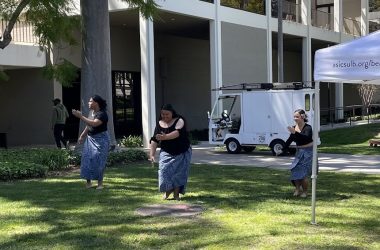During the 2008 election, President Barack Obama rallied students to get involved by donating and voting. This time around, students are rethinking the notion of giving money to campaigns due to financial situations and dire times.
According to opensecrets.org, Obama’s donations from individual contributors for the 2008 election added up to $656,357,572, compared to Republican candidate John McCain, who only gained $199,275,171 from individual contributions. Obama was able to get most of his funds from smaller donations and corporations.
Now as the economy remains at a standstill, students are more reluctant to dig into their pockets.
John Boos, an educational technology graduate student, said he does not have much time or money on his hands. He tutors students in Bible study when he is not studying for his classes.
Instead of giving money to charity or campaigns, Boos said he donates all of his time to the students he tutors. However, Boos said he does not disagree with donating to campaigns.
“If [students] find it is a valuable thing [and] if they believe that politics can change the
situation, then they should donate,” Boos said.
Francesca Stribling, a psychology major, said she would also have to dig deep into her pockets to donate during the election. She currently does not have enough money to consider donating to a campaign.
“I have not [donated], because of my current economic situation,” Stribling said.
Nilan Chaturvedi, a political science professor, said it might be more difficult for students to donate, considering the typical low income of students. However, he said that donating creates good citizenship and lets Americans take advantage of what democracy has to offer.
“In formal political parties, we don’t see forms of participation among young people,” Chaturvedi said. “You want to see participation out of citizens as a whole.”
CSULB political science professor Ron Schmidt said students should be active in politics, even if it does not involve donating hard cash. He said volunteering for different campaigns is also a good way to practice citizenship.
“If they have money, that’s great,” Schmidt said. “[But] there’s lots of ways to donate.”
Schmidt also said he believes that the campaigns should one day be publicly funded in order to close the gap between the rich and the poor.
“The rich get a huge advantage by campaigns,” Schmidt said. “Now, billionaires are putting in huge amounts.”
With the financially privileged able to donate more, they are also able to create high-level connections with the politicians, Schmidt said. He also said that the wealthy can control not only the outcomes of the election, but the political agenda as well.
Elsa Liaberg, a Swedish international student, said the campaigns from her country are generally publicly funded.
She said that campaigns in America differ from those in Sweden, which are mostly not funded by citizens.
“Your politicians go to the extreme,” Liaberg said. “[In Sweden] campaigns are mostly government funded … and the donations are not as much.”
Sophomore chemical engineering student Christina Overholtzer also believes the campaigns become all about the money.
“It shouldn’t be about the money,” Overholtzer said. “Donations should go directly towards helping other people.”
Amy Highwart, a sophomore pre-nursing major, also said students should get involved if they have the time or money. However, she said donors should have a strong notion of who they are going to donate to.
“It depends on where they stand,” Highwart said. “If you support them, then yeah, go for it!”



